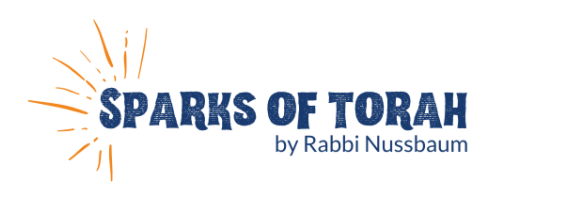by Rabbi Nussbaum
VOLUME 95 NUMBER 4
April 24, 2020
Nissan 30, 5780
PARSHAS TAZRIA-METZORAH
Candlelighting Time 7:29 PM
These two parshios deal extensively with the laws of impurity, a very complex section of halacha. At the end of the parsha, we are cautioned that when one is defiled he should not enter the Mishkan, and later the Beis Hamikdash. Entry in to either is punishable by Kores, a heavenly administered death. Why is it so vital that one who has become defiled should not enter in to the Mishkan. Is it because that he will then create further defilement to the environs of the Mishkan? Or is the Mishkan, due to its extreme sanctity, a place which requires that defilement should never enter its midst? If so, then why is this restriction so important; does the interior areas of our holy places suffer when exposed to defilement?
Additionally, one is not allowed to eat the flesh of a sacrifice if either the person has become defiled or the meat has become defiled. Is the concept behind this prohibition similar to the barring of one’s entry in to the Mishkan when one is defiled or is there a different reason?
Chinuch one of the early halacha codifiers, always attributes a philosophical underpinning for each mitzva which is not the reason for the mitzvah rather it is an intellectual approach which allows us to glean a valuable lesson from each mitzvah. In discussing the prohibition of entry in to the Beis Hamikdash when one is impure, he writes that when an individual contracts impurity, his spiritual essence is weakened. Not only is it impaired, but the connection between one’s intellect and his soul is lessened. And this reference is not just to say that our ability to cognitively understand is hampered, but confusion sets in. The rational parameters of the mind are no longer intact and therefore one’s ability to process is mitigated if not totally disabled. Although we don’t necessarily sense this disorder, however, this is the state of the individual that has become defiled.
With this in mind, upon further introspection of this idea, this would explain why one should not eat the sacrificial meat whether he is defiled or the meat is defiled because of the aforementioned condition. The Talmud explains that when the priests consume the flesh of the offerings, they become spiritually elevated. This potential ascension is therefore hampered when a person’s essence has been compromised by his state of defilement. However, why would defilement bar one from entry in to the Beis Hamikdash? Would such a quasi-state of confusion hinder his ability to discern the importance of the Beis Hamikdash or would he perhaps transgress and not observe the sanctity of the Beis Hamikdash while in this state of lack of discernment? Chinuch actually addresses this issue and concludes that since the presence of Hashem is tangible in the Beis Hamikdash, at least in part due to the revelation of miracles that transpired there, it is inappropriate to introduce impurity in to that area which reverberates with the Divine Presence!
This point of the Chinuch actually resonates for us even when we do not have the merit of the Beis Hamikdash in our midst. Clearly, it is unsuitable to conduct oneself in a way that would be an affront to Hashem. Our shuls and places of study have an express purpose. The shuls are for davening, to relate to Hashem on a personal level and draw near to Him when we experience distressful situations. Our places of Torah study are dedicated to excelling in our scholarship of knowledge of Torah and is also a place where we can identify with Hashem on a level unparalleled elsewhere. And these two fundamentals points should be uppermost in our minds when we enter these two special areas. However, preparation is necessary in order that we focus well on our obligations incumbent upon us as we enter. Often we are late for davening and run in to the shul or we arrive to study in a different state of mind as we may be coming from our place of work or home where we were occupied in other pursuits. Chofetz Chaim in his seminal sefer on loshon hora warns us that the there is a mitzvah to honor and respect our shuls and places of study with the same level of dignity of the Beis Hamikdash!
A BYTE FOR SHABBOS
Although we have an evil inclination, it is only evil if we utilize it in that fashion. However, if we use it to serve Hashem, as an example, we eat to strengthen ourselves, then actually it can be a source of power for us. S’FAS EMES


